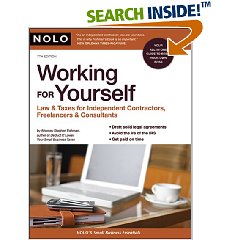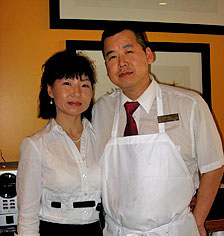 Stephen Fishman has tackled one of the trickiest subjects related to freelance writing; taxes. A book like this should be in every freelancer’s library unless you’re convinced you know the rules inside and out–but even if you DO, it’s good to have a reference for those gray areas.
Stephen Fishman has tackled one of the trickiest subjects related to freelance writing; taxes. A book like this should be in every freelancer’s library unless you’re convinced you know the rules inside and out–but even if you DO, it’s good to have a reference for those gray areas.
Why are taxes such a minefield for freelance writers? A major portion of the issue has to do with your deductible expenses, your status with the IRS and the amount of money you make with your freelance income. You are entitled to take deductions for your legitimate business expenses, but if those deductions end being more than you make, you take a loss at tax time. This means you get no refund, but you probably don’t OWE the IRS any money. So far so good, right?
You can only take a loss for three years in a row before the IRS starts raising its collective eyebrows at you. The IRS can reclassify your freelance writing income into the “hobby” category, and while there are exceptions, you need to dive headfirst into the tax code to learn what they are and how you should go about filing. Why should that concern you? Because hobby income is NOT eligible for the same deductions you’d get in the business category. You do NOT want to be relegated to the hobby bracket unless that’s where you want to be as a VERY part-time freelancer.
Working For Yourself offers plenty of valuable information and insight on the labyrinth of tax issues freelancers and independent contractors have to navigate. It’s available from Amazon for $26.39. If you buy by clicking the link, you support Freelance-Zone.com, but regardless where or how you get this info, all freelancers should know what they’re getting into at tax time.



